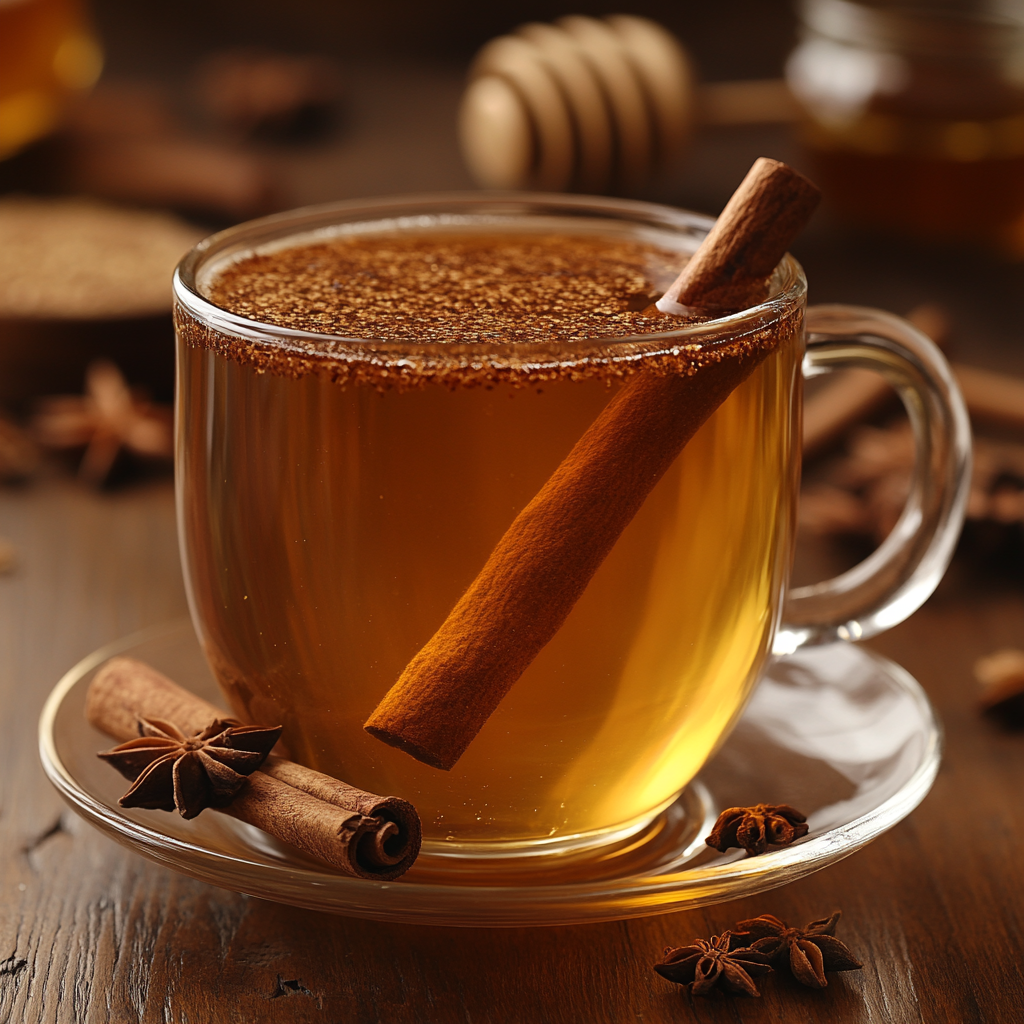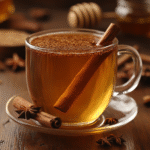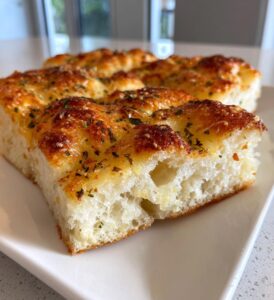Few drinks feel as comforting as a warm cup of cinnamon tea. This aromatic herbal beverage combines the sweet, spicy notes of cinnamon with soothing warmth, making it a favorite in kitchens around the world. Beyond its irresistible flavor, cinnamon tea is also celebrated for its health benefits, from supporting healthy blood sugar to boosting immunity. Whether you prefer the rustic taste of cinnamon sticks or the convenience of powdered cinnamon, this guide walks you through everything you need to know — from history and health perks to brewing tips and flavor twists.
If you love exploring natural tea blends, discover great ideas like Butterfly Pea Flower Tea: Benefits, Side Effects, and How to Enjoy It to inspire your next sip-worthy creation.

Introduction to Cinnamon Tea
What is Cinnamon Tea?
Cinnamon tea is a naturally caffeine-free herbal infusion made by steeping cinnamon bark — usually in the form of sticks or powder — in hot water. The drink can be enjoyed on its own or paired with ingredients like honey, lemon, or ginger to enhance both flavor and health benefits. Known for its cozy aroma and slightly sweet-spicy taste, cinnamon tea has gained popularity as a daily wellness ritual and a comforting drink for cold days.
Brief History & Cultural Significance of Cinnamon Tea
The story of cinnamon tea begins thousands of years ago in Sri Lanka, India, and Egypt, where cinnamon was prized not only as a spice but as a medicinal ingredient. Ancient civilizations used cinnamon in tonics for colds, digestive issues, and general vitality. In modern times, cinnamon tea remains a staple across cultures — in Mexico, it’s often paired with piloncillo for a dessert-like drink; in Asia, it’s infused with herbs for healing teas; and in the Middle East, it’s served at gatherings as a symbol of warmth and hospitality.
Health Benefits of Cinnamon Tea
Antioxidant and Anti-inflammatory Properties
Cinnamon is loaded with powerful antioxidants, particularly polyphenols, which help combat oxidative stress and protect the body’s cells from damage. These compounds can play a role in slowing signs of aging and reducing the risk of chronic disease. On top of that, cinnamon contains natural anti-inflammatory agents that may help ease discomfort from muscle soreness, arthritis, and even menstrual cramps. By sipping cinnamon tea regularly, you give your body a gentle, flavorful way to support overall wellness.
Benefits for Blood Sugar, Digestion, and Heart Health
One of the most researched benefits of cinnamon is its ability to help stabilize blood sugar levels. Several studies suggest that compounds in cinnamon may improve insulin sensitivity, making it a valuable addition for people managing glucose spikes. Cinnamon tea is also gentle on the stomach and can stimulate digestive enzymes, aiding in smoother digestion and relief from bloating. For heart health, cinnamon’s combination of antioxidants, anti-inflammatory properties, and cholesterol-balancing effects offers a triple win for your cardiovascular system.
If you’re interested in other health-promoting drinks, check out Apple Cider Vinegar Tonic – The Ultimate Guide for Health & Weight Loss for another powerhouse beverage that supports metabolism and gut health.
Ingredients for the Perfect Cinnamon Tea Recipe
Types of Cinnamon You Can Use (Ceylon vs. Cassia)
Choosing the right cinnamon is more than just a flavor decision — it can affect both the taste and health profile of your tea.
- Ceylon Cinnamon: Often called “true” cinnamon, Ceylon has a delicate, sweet flavor and contains lower levels of coumarin, a compound that can be harmful in high doses. It’s the better choice for daily tea drinkers.
- Cassia Cinnamon: This is the more common and less expensive variety, with a stronger, spicier taste. While it’s perfectly fine in small amounts, Cassia contains more coumarin, so moderation is key.
Many tea lovers keep both on hand — Ceylon for gentle daily sipping, Cassia for bold, occasional brews.
Additional Flavor Boosters (Honey, Lemon, Ginger)
While pure cinnamon tea is delicious, adding complementary ingredients can elevate your cup to a whole new level.
- Honey: Adds natural sweetness and antibacterial benefits.
- Lemon: Brightens the flavor and boosts vitamin C content.
- Ginger: Adds a spicy kick and extra digestive support.
These additions not only make the tea more enjoyable but also add their own unique health benefits, creating a drink that’s both tasty and functional.
If you’re inspired to try other creative infusions, don’t miss our Lavender Matcha Latte Recipe – The Ultimate Guide to a Calming & Energizing Drink for another fragrant, health-focused option.
How to Make Cinnamon Tea Step-by-Step
Making Cinnamon Tea with Sticks
Using cinnamon sticks is the most traditional way to prepare cinnamon tea, giving you a smooth, rich infusion without excessive sediment.
Ingredients:
- 1 cinnamon stick (Ceylon or Cassia)
- 1 ½ cups water
- Optional: honey, lemon, ginger
Instructions:
- Place the cinnamon stick in a small pot with the water.
- Bring to a gentle boil, then reduce heat and simmer for 10–15 minutes.
- Remove the stick, pour into a cup, and add honey or lemon if desired.
Tip: The longer you simmer, the deeper the flavor. For a bold brew, simmer up to 20 minutes.
Making Cinnamon Tea with Powder
Powdered cinnamon makes a quicker cup but requires careful preparation to avoid clumps.
Ingredients:
- ½ teaspoon ground cinnamon
- 1 ½ cups boiling water
- Optional: sweetener or flavorings
Instructions:
- Add ground cinnamon to a cup or teapot.
- Pour boiling water over it, whisking quickly to help the powder blend.
- Let steep for 5–7 minutes before straining through a fine mesh or cheesecloth.
Tip: For a smoother drink, you can mix the cinnamon powder with a small amount of hot water first to create a paste, then top it up with the rest of the water.
Print
Cinnamon Tea Recipe – A Delicious & Healthy Guide
- Total Time: 17 minutes
- Yield: 1 serving 1x
- Diet: Vegan
Description
A soothing, naturally caffeine-free herbal infusion made by steeping cinnamon bark in hot water, offering sweet-spicy flavor and wellness benefits.
Ingredients
- 1 cinnamon stick (Ceylon or Cassia) or 1/2 teaspoon ground cinnamon
- 1 1/2 cups water
- Optional: honey
- Optional: lemon
- Optional: ginger
Instructions
- Place the cinnamon stick in a small pot with the water.
- Bring to a gentle boil, then reduce heat and simmer for 10–15 minutes (or whisk ground cinnamon into hot water and steep 5–7 minutes).
- Remove stick or strain powder.
- Add honey, lemon, or ginger if desired.
Notes
For a stronger flavor, simmer cinnamon sticks up to 20 minutes. Use Ceylon cinnamon for daily tea to limit coumarin intake.
- Prep Time: 2 minutes
- Cook Time: 15 minutes
- Category: Beverage
- Method: Stovetop
- Cuisine: Global
Keywords: cinnamon tea, herbal tea, caffeine-free, spiced tea, wellness drink
Variations of Cinnamon Tea Recipes
Cinnamon & Ginger Tea for Immunity
This blend pairs the warmth of cinnamon with the zesty spice of fresh ginger, creating a powerhouse drink for cold and flu season. To make it, combine one cinnamon stick and a teaspoon of freshly grated ginger in a small pot with 1½ cups of water. Bring to a boil, then reduce the heat and simmer for 12–15 minutes. Strain into a cup, and sweeten with honey if you’d like. This tea not only boosts your immune system but also aids digestion and reduces inflammation.
Iced Cinnamon Tea for Summer Refreshment
Cinnamon tea isn’t just for chilly days — it can be a refreshing treat in warmer months. Start by boiling two cinnamon sticks in three cups of water for about 15 minutes. Remove from heat, stir in honey while it’s still warm, and let it cool completely. Pour over ice and enjoy a subtly sweet, cooling drink that still delivers cinnamon’s blood sugar–supporting benefits.
Tips for Brewing the Best Cinnamon Tea
Water Temperature and Steeping Time
Cinnamon releases its flavor best in hot water, but boiling it too aggressively can make the taste overly bitter or woody. For cinnamon sticks, start with a gentle boil, then reduce the heat and simmer to coax out the rich aroma and natural sweetness. If you’re using cinnamon powder, steeping in water just off the boil will help blend the flavors without creating clumps. The sweet spot for steeping is usually between 10 and 15 minutes for sticks, and 5 to 7 minutes for powder.
Best Practices for Maximum Flavor & Nutrient Retention
Fresh cinnamon makes all the difference — older sticks or powder can lose potency, leaving you with a flat-tasting tea. Store cinnamon in an airtight container away from sunlight to preserve its oils. If you’re adding honey or lemon, wait until the tea has cooled slightly so you don’t destroy their delicate nutrients. And if you want a deeper, more robust taste, lightly crush the cinnamon stick before brewing to release more of its natural oils.
If you’re looking for other herbal infusions with optimal brewing methods, looking for inspiration? Try Butterfly Pea Flower Tea: Benefits, Side Effects, and How to Enjoy It for a colorful and antioxidant-rich option.
Common Mistakes to Avoid
Using Too Much Cinnamon
It’s easy to think that adding more cinnamon will make your tea more flavorful, but too much can overpower the taste and even create a slightly bitter or medicinal flavor. In addition, large amounts of cinnamon — especially Cassia — can lead to high coumarin intake, which isn’t good for your liver in the long run. Stick to about one cinnamon stick or half a teaspoon of powder per cup for a balanced, enjoyable brew.
Boiling Cinnamon Powder Incorrectly
Cinnamon powder can clump if you dump it directly into boiling water without stirring. This not only creates an uneven flavor but also leaves gritty sediment in the cup. To avoid this, whisk the powder into a small amount of hot water first to make a smooth paste, then top it up with the rest of your water. This method ensures the tea is smooth and the flavor is evenly distributed.
FAQs About Cinnamon Tea
How do I make cinnamon tea?
To make cinnamon tea, simmer a cinnamon stick in 1½ cups of water for 10–15 minutes, then strain and enjoy. For powder, whisk ½ teaspoon into hot water, steep for 5–7 minutes, and strain before drinking. You can add honey, lemon, or ginger for extra flavor and health benefits.
What are the benefits of drinking cinnamon tea?
Cinnamon tea is rich in antioxidants and anti-inflammatory compounds that may support heart health, improve digestion, and help stabilize blood sugar levels. It can also provide a natural energy lift without caffeine, making it an ideal daily drink for wellness support.
How much cinnamon do you put in tea?
A good rule of thumb is one cinnamon stick or ½ teaspoon of cinnamon powder per cup of water. This gives you a flavorful tea without making it too overpowering or increasing coumarin intake beyond safe levels.
Can you boil cinnamon powder for tea?
Yes, but it’s best to whisk the powder into a small amount of hot water first to form a smooth paste before adding the rest of the water. This prevents clumping and creates a smoother, more even flavor in your tea.
Conclusion
Final Thoughts on Making and Enjoying Cinnamon Tea
Cinnamon tea is more than just a warm, fragrant drink — it’s a timeless wellness ritual that has been cherished across cultures for centuries. Whether you’re brewing it for its health benefits, its cozy aroma, or as a caffeine-free alternative to coffee, there’s a version of this tea to suit every mood and season. From classic stick infusions to cooling iced blends, cinnamon tea offers endless ways to enjoy its sweet-spicy charm.
Encouragement to Try Different Recipes and Share
Now that you know the benefits, variations, and best brewing methods, it’s time to make cinnamon tea part of your routine. Experiment with different add-ins like honey, lemon, or ginger to find your perfect cup. Share it with friends, serve it at gatherings, or enjoy it as a personal moment of calm. And if you love exploring natural drinks, don’t miss our Apple Cider Vinegar Tonic – The Ultimate Guide for Health & Weight Loss for another tasty, health-boosting recipe to try next.
For daily recipes you can follow me on Facebook and Pinterest.


